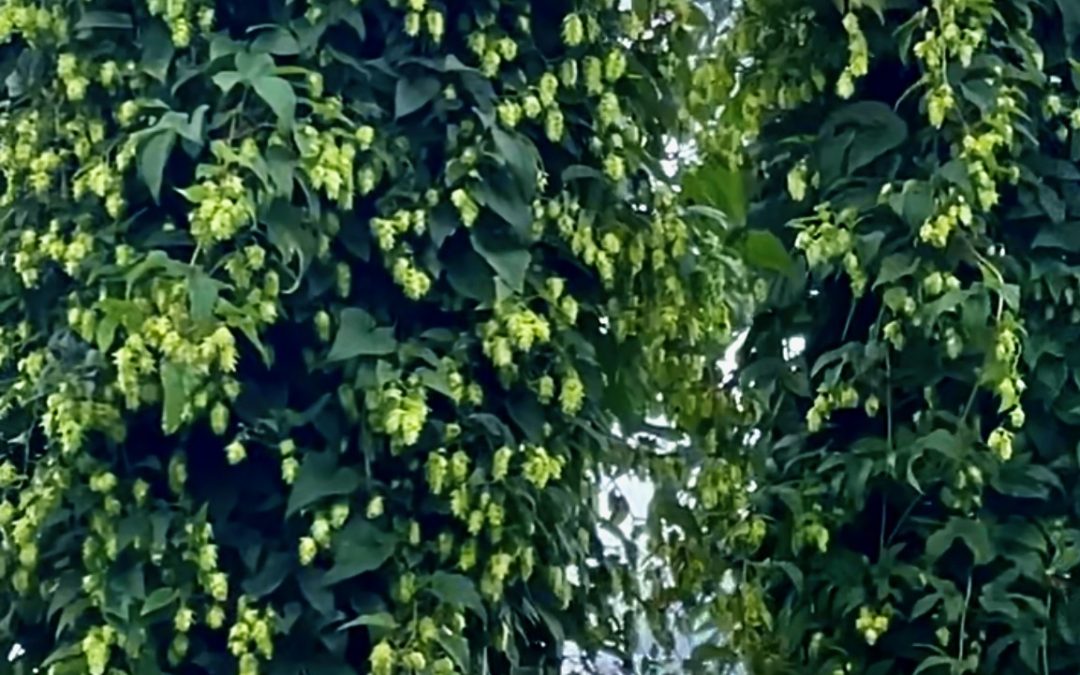Farming involves making decisions – lots of them. Do we trust the weather forecast and cut hay today or wait? Is this dry enough to square bale? Do we take that steer with the horns? What sheep to breed? How close do we want to keep the genetic lines? Which fields to fertilize? When is it time to euthanize an animal? Where does the potato patch go next year?….
We have several new projects in the works. Tom and Chuckie are working on a new potato patch. Soil that has not grown potatoes before harbors less disease factors. They were very pleased with the scab resistance of the new variety of Eva potatoes they grew this year. But being “traditionalists” they still like their Kennebecs, so the new patch will host the Kennebecs and they will also plant more Evas again. They are also doing the prep work for a new Sweet Corn patch and a patch for turnips. You may notice the freshly tilled soil by the brewery.
Another project we have been working on is collaborating with the University of Md research station in Keedysville to research the ‘Monocacy’ hop. This is a very old variety that we found on a farm in Utica. After having it genetically tested it seems it is now totally unique and unrelated to any other hop growing in this country. This is important because it has shown resistance to all the diseases Maryland has thrown at hops for 200 years (which wiped out the original hop production here). And it grows into HUGE hop bines, loaded with cones that also mature later than the traditional varieties. It is now officially the Monocacy Hop. Tom and Bryan Butler (U MD) with support from Grow and Fortify have gotten a grant from USDA / MDA to research the usefulness of the hop for brewing. Harry has done some test brews with it and is very pleased. Look for 3 different beers coming using this hop. Releasing in February will be a pale ale, local lager, and a Vienna lager all using the Monocacy Hop. You won’t find this anywhere else!
Last year at this time we also faced a really difficult decision. Many of you followed the story of Wiley and her coming into our lives and were extremely supportive – for which we are very grateful. We were very blessed to have our path cross with this amazing dog. But one thing about dogs (and really all our animals) is that they are what they are and were bred to be. And for their best interest we need to respect and honor that. Wiley was bred to guard her farm and her sheep. Although she was extremely affectionate with us and our dogs (with more tolerance for Heidi, the hyper Aussie pup, than imaginable) she started taking exception to other dogs and began expanding her boundaries as her confidence grew. So, we made the very hard decision that she had to go. We are fortunate to have a strong network in the shepherding world and she went with AJ, a very experienced shepherd and guard dog person. (Wiley gave her the highest recommendation by immediately climbing in her lap and becoming her assistant mechanic.) AJ spent many months working with her and eventually she found a new home on a farm in Howard County that was losing multiple sheep per night to coyotes. Proud to say they have not lost one since she got there. Her entire new neighborhood loves her – it is on a shared lane, and they all drive down with a box of Milkbones in their car for Wiley. She is happy, productive, and loved by many.

